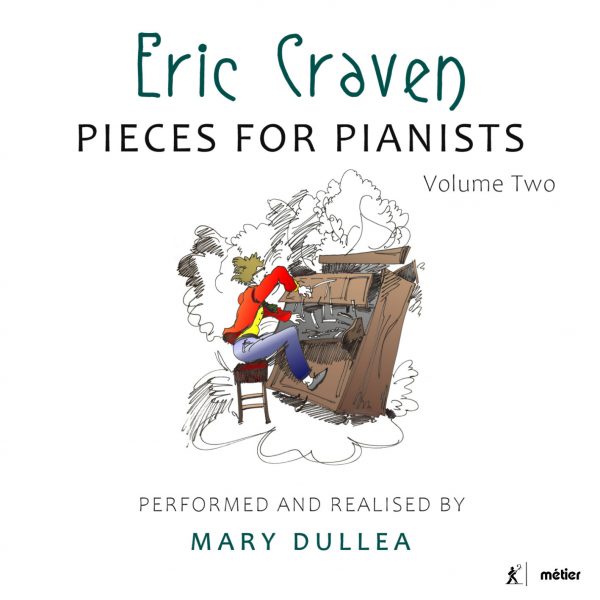The Chronicle Review Corner
For most of his life Eric Craven has kept a very low profile, concentrating on his teaching career in Manchester and developing his “non-prescriptive” composing method, a style that allows the performer varying degrees of freedom. We like it — it’s interesting — but it’s not destined to bother Classic FM (probably).
Having created his new style in what seems to be a rather wilful indifference to the standard frames of reference, as well as fame and fortune, he’s now released two volumes of easier pieces that are more accessible for both listener and performer.
Mr Craven has in the past emailed us after reviews (thus it’s Mr Craven to you) so we don’t suggest lightly that he’s perhaps had a load of more accessible tunes up his sleeve all along, but having created the image of enigmatic composer he’s backed himself into a corner, like Ozzy Osbourne secretly having an album of Black Lace covers (“Sharon oilways said Oi should reloise it”).
This second collection of pieces is quite lovely, a nice programme of gentle piano that only once gets even close to excitable. There’s a lot of silence, too, which makes it ideal late night listening — Bach’s Goldberg Variation springs to mind, though it always does where gentle piano and silence are involved.
You can buy the scores, too, Mr Craven says “any pianist with even modest standards of ability” can play, although “modest” is doing some work there, as for each piece the parameters of tempo, dynamics, phrasing, pedalling and instructions are omitted from the scores.
The delineations of bars, Mr Craven adds, “is solely for convenience, to facilitate reading rhythm in manageable bar lengths. They have no function as metric accentuation”.
Michael Quinn supplies complex sleeve notes for those who want them, taking in everyone from Sir Bernard Lovell to the coolest man who ever lived, theoretical physicist Richard Feynman, whose quote (from a poem) is used to illustrate his feeling about the works: “I, a universe of atoms, an atom in the universe”.
@divineartrecordingsgroup
A First Inversion Company
Registered Office:
176-178 Pontefract Road, Cudworth, Barnsley S72 8BE
+44 1226 596703
Fort Worth, TX 76110
+1.682.233.4978












